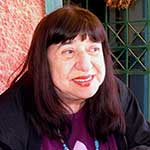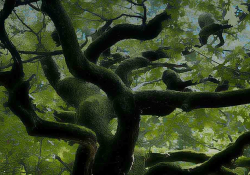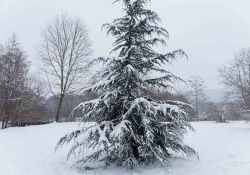I Burned to the Ground
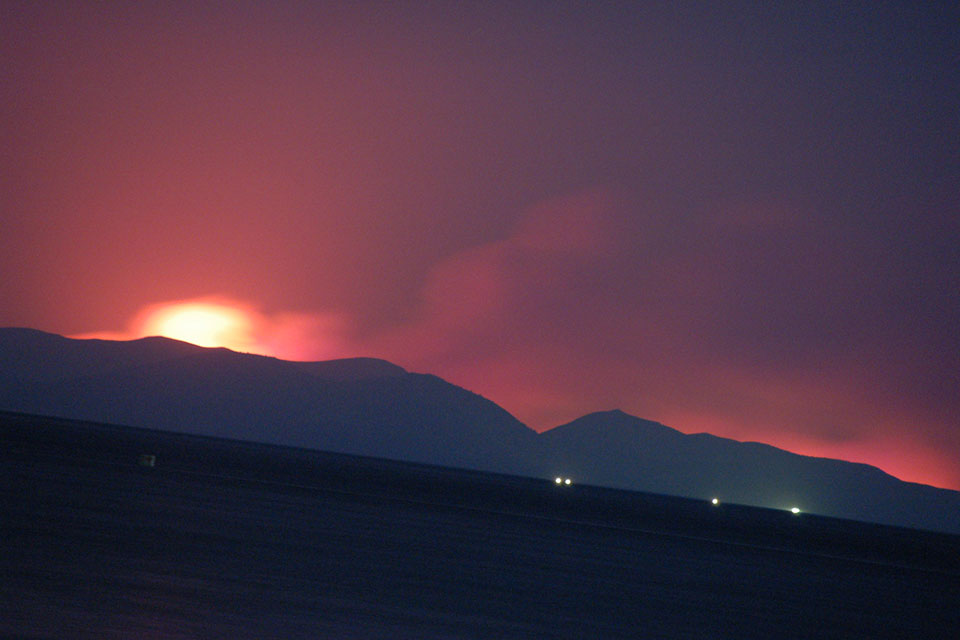
… And instead of despair
before your own cracked skin
instead of drowning in memories of him
instead of hopelessness as you face
the scorched plain of your future –
even though you still say “tomorrow” out of habit.
Instead of the world eternally perfected
the egocentric hope
that perhaps your life has some meaning
you unexpectedly feel intense pain
watching images of nature burn
because deep down
nature was your only comfort –
that you would live forever
beneath her rooted children
sensing from under the earth
the leaves swirling
the birds resting
for a second.
But terror at the black destruction
enveloping the forest
like Solomos before the conflagration of Psará,
horror at the pundit’s useless predictions
“perhaps never again on this slope
will treetops touch the sky”
tangles strangely
at the root of your heart
with a kind of bliss
because you finally escaped
the prison of “I,”
its often inessential details
undermining any measure
of compassion given.
For one moment you stop
grasping at the railings
of your own insignificance.
You compare it
to the eternal meaning
of plants growing
and give yourself to that
with all your body.
Aegina, 9–6–2007
Translation from the Greek
Translator’s Note
by Karen Van Dyck
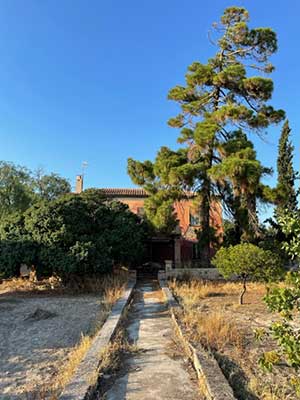
This summer of wildfires in Canada lent an urgency to my translating a poem Katerina Anghelaki-Rooke sent me in 2007 after a summer of wildfires in Greece. Great portions of the Peloponnese across from the island of Aegina where she lived were destroyed. The poem called out for a translation that would reckon with this destruction that keeps repeating itself. While the poem connects the scorched plains in the Peloponnese to the blackened ridge of Psara in Dionysios Solomos’s famous poem about the Greek Revolution in 1825, my translation would add the 20 million acres of boreal forest burning now. Just publishing it in 2023 would call attention to how climate change has upped the ante.
But how to make this Greek poem work for English readers? How to bring out the global impact of its eco-activism without erasing its specific cultural history? With one word taken from Solomos’s famous poem, ολόμαυρη (olomavri; completely black), Anghelaki-Rooke had connected two catastrophic fires. How to make this available to my readers in English? I could add a footnote, but that would interrupt the flow of the poem. What if I inserted a phrase that identified the allusion, giving the poem its place in Greek literature and enabling my readers to interpret it for themselves?
Finding a solution to this intertextual problem was only the start. What about the way the different discourses of poetry and the news were being played off each other? How could I bring out the contrast between the poetic lines and the journalistic ones? Between the poet’s horror that “tangles strangely … with a kind of bliss” and the pundit’s predictions about treetops “never again” touching the sky? Agency lay not in adopting either discourse, the poem in my interpretation seemed to be saying, but in juxtaposing them and thereby shifting attention from both the lyric I and the media coverage of destruction to a collective project of affirming nature. How could I get this across in English?
The problem seemed connected to another I was having with the title. In Greek both the “I” as well as the hackneyed snippet I translated as “to the ground” were in quotation marks and under interrogation. Only the verb in the title escaped: burned. Verbs in this poem were where the activism was. The aim was to get from the past tense of “to burn” in the title to the present tense of “to give yourself” at the end. But whereas the quotation marks in the Greek title worked, they seemed precious in English. They diminished the political force of the statement. What if I were to move them later in the poem and put them around the cliché “perhaps never again … will treetops touch the sky,” where there was already another reference to the prison of the “I” in quotations? This way I could underscore the two different ways of speaking, interrogate both, and have the title I wanted.
Choice is, of course, conditioned by all sorts of factors: wealth, health, war. I am lucky to have the time and the kind of job where I can make these decisions about translation. But even in dire circumstances, Anghelaki-Rooke’s poem in my reading insists, there is a way of focusing that distinguishes resilience from resentfulness. Railing against the injustices, bemoaning what has already transpired, wishing things were otherwise doesn’t change anything. Giving yourself to plants growing does. With this translation, I wanted to ask to what extent giving yourself to translating is like giving yourself to plants growing. It, too, requires a focus on remaking and celebrating what is new rather than regretting what is gone and will never be the same.
